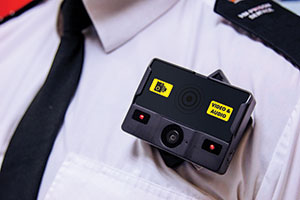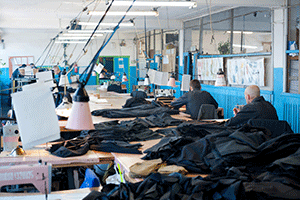
Police leaders have welcomed news of Home Office funding which will be used develop an accelerated national detective training programme.
Police Now will deliver the training within 12 weeks, which means that forces will be able to boost the number of detectives nationally by up to 1,000 in the next five years.
Police Now, the award-winning police graduate recruitment programme, will develop the scheme alongside the Home Office, which is providing £2.8million to support Police Now in 2018/19 and will provide an additional £350,000 seed funding for the detective entry programme.
The programme will include digital training to ensure that recruits are equipped to deal with the changing nature of modern crime. It will also focus on problem solving, crime prevention and safeguarding so that detectives on the scheme meet the needs of forces and communities.

Technologist Emil Eifrem tells The Custodial Review that a combination of graph databases and the Person, Object, Location, Event data model could really help lawmakers – and social care teams too…
Graph database technology is a powerful way of both recognising and leveraging connections in large quantities of otherwise random data. The International Consortium of Investigative Journalists used it to detect fraud and corruption in its recent famous Panama and Paradise Papers global probes, for instance, while Google uses a graph-based way of representing knowledge to enhance its search engine and map the Web.
Whether it’s more effectively guarding borders, spotting possible terrorist activity, detecting welfare fraud or helping uncover scams and hacker attacks, graph databases are a powerful enabler for getting ‘big picture’ connected analysis. But unlocking useful insights based on connections, graph technology may also offer a way to support the Police, social services and other government agencies.

A visit to The Emergency Services Show gives anyone working in a custody setting access to the very best solutions providers and support networks to protect them at work and carry out their role to the best of their ability.
Last year’s event attracted a record number of 7,599 visitors, with a significant 30 per cent increase in visitors from the prison service

In accordance with the Protocol between HM Chief Inspector of Prisons and the Ministry of Justice dated 30 November 2017, I am writing to you to invoke the Urgent Notification (UN) process in respect of HM Prison Exeter.
An unannounced inspection of HM Prison Exeter took place between 14 and 24 May 2018. This inspection identified a number of significant concerns with regard to the treatment and conditions of prisoners.

Custodial Review's Steve Mitchell and Wendy Hewitt visited HMP Lowdham Grange, Notts, to find out why it had introduced a permanent patrol dog section. Lowdham Grange is a Category B prison for adult male prisoners with more than four years left on their sentence. It is operated and managed by Serco. It has a capacity of 930 long-term prisoners.
We spoke to Mark Hanson, the prison’s Director, and to Peter Chojnacki, a prison officer with the rank of prison dog handler. Peter’s aspiration to specialise in dog handling began during his initial prison officer training, 12 years ago, when he attended a dog handling demonstration. During his subsequent career Peter took the initiative to learn as many aspects of how prisons are run as possible with a view to being appointed as a dog handler.

HM Chief Inspector of Prisons has put the Justice Secretary publicly on notice that he must explain how conditions at HMP Exeter will be improved as a matter of urgency. Inspectors found disturbingly high levels of violence and self-harm and a serious failure to tackle safety issues.
Peter Clarke told David Gauke safety at HMP Exeter was “unequivocally poor”, prompting him to invoke the Urgent Notification (UN) protocol, under which the Justice Secretary agrees to take personal responsibility for driving improvements at a prison identified by the Chief Inspector as suffering from significant problems, particularly relating to safety.

Each year there are nearly 6000 reported incidents of assaults on prison officers within English and Welsh prisons, 700 of which resulted in serious injury last year. With figures of incidents rising by a third in 2016, the protection of staff and prisoners is high on the government’s agenda.
Statistics from the Ministry of Justice indicate that prisoner-on-prisoner assaults have, too, risen by a third in the last year, prompting comments from past Justice Secretary Liz Truss around prison safety and reform, and from the Prison Reform Trust who printed that “people in prison, prisoners and staff, are less safe than they have been at any other point since records began.”

We are giving away two sets of two top-quality padlocks, in conjunction with Nothing But Padlocks – suppliers of padlocks to the police.
The sets (the Abus 701B/45 – a brass, double-bolted padlock with a sealed lock body – and the smaller Abus 155/30, with combination for keyless entry) will be given away to two lucky readers.
Here, Jonathan Low-Hang from Nothing But Padlocks tells The Custodial Review about its top-quality locks.
Tell us about your business…
Nothing But Padlocks has been trading online for nine years. We feel we are the leading specialist in padlock supply in the UK.
We expect to provide further specialist advice to larger organisations such as the Met Police as well as the individual customer.

As part of its forthcoming employment strategy for prisoners, the government should introduce a radical approach to using release on temporary licence (ROTL) at scale across the prison estate.
This would be a huge incentive to good behaviour in prison as well as an effective aid to resettlement, the briefing suggests.
